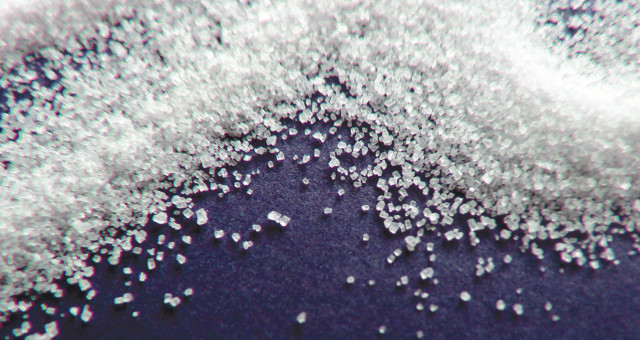Govt allows duty-free import of raw sugar
Government waives the 25 per cent regulatory duty on the import of raw sugar.

Govt allows duty-free import of raw sugar
After the prices of sugar reached a historic high of Rs85 per kilogramme, the Economic Coordination Committee (ECC), headed by the Minister of Finance Hafeez Shaikh, decided to allow the market to import raw sugar by waiving the regulatory duty and restricted the Trading Corporation of Pakistan from the import of the commodity.
Nonetheless, the decision will not have any impact on prices as raw sugar can only be imported at the time of cane crushing. The millers have to refine the sugar before selling it in the open market, where prices have surged to Rs85 per kg from Rs67 per kg. Moreover, the government did not allow the duty-free import of refined sugar.
The ECC noted with concern that the prices of all the essential items have registered an increase, depicting the impact of floods on commodities. The Sensitive Price Indicator, a barometer to monitor the rates of 53 items, surged by 20.5 per cent. Prices of onions increased by 137 per cent, potatoes 35 per cent and wheat flour 3.7 per cent.
Sakib Sherani, the principal economic adviser to the ministry of finance, said that the global prices of sugar, wheat and cotton were on the higher side and had broken two-decade-old records. He said that the country has 10.1 million tons of wheat in store which is higher than last year’s.
However, the sugar stock was less than 600,000 tons, which is much lower than last year and less than the country’s consumption requirements for two months.
The ECC directed the Trading Corporation of Pakistan to auction 50,000 tons of sugar in the market to ease pressure on prices after provinces failed to gather their quota from the TCP. Provinces only took 44,000 tons of sugar compared to their allocation of 100,000 tons which constrained supply and increased prices.
The ECC also approved a relief package of Rs21.4 billion for the free distribution of seeds and fertiliser amongst farmers in areas affected by floods. The package was earlier cleared by the Council of Common Interests, a statutory body representing federal and provincial concerns.
However, the ECC decided to consult all provincial governments to share the cost of the decision before handing over agriculture inputs to the farmers.
While discussing the ECC’s decisions, the Secretary of Finance Salman Siddique said that out of the 4.5 million acres of cultivated land affected by floods, 3.5 million acres or around 70 per cent will be retrieved and be available for cultivation during the Rabi season.
The cultivation would help retrieve Rs63 billion of losses. The total losses to crops were estimated at Rs280 billion. The ECC also decided to distribute 260,000 tons of imported fertiliser for free and refused an increase in the price of fertilisers being sought by the ministry of industries.
The secretary also said that the issue of maintaining buffer stocks of wheat, sugar and fertiliser was discussed in detail and the ECC decided to form a relevant committee which will submit its recommendations within a month.
He added that the issue of commodity financing was also discussed in detail and the committee noted that the debt on account of commodity financing increased by another Rs42 billion. Earlier reports estimated the amount at Rs400 billion. He said that in order to avert a circular debt crisis the committee decided to make the private sector a partner in maintaining strategic reserves of commodities.
Published in The Express Tribune, September 22nd, 2010.


















COMMENTS
Comments are moderated and generally will be posted if they are on-topic and not abusive.
For more information, please see our Comments FAQ